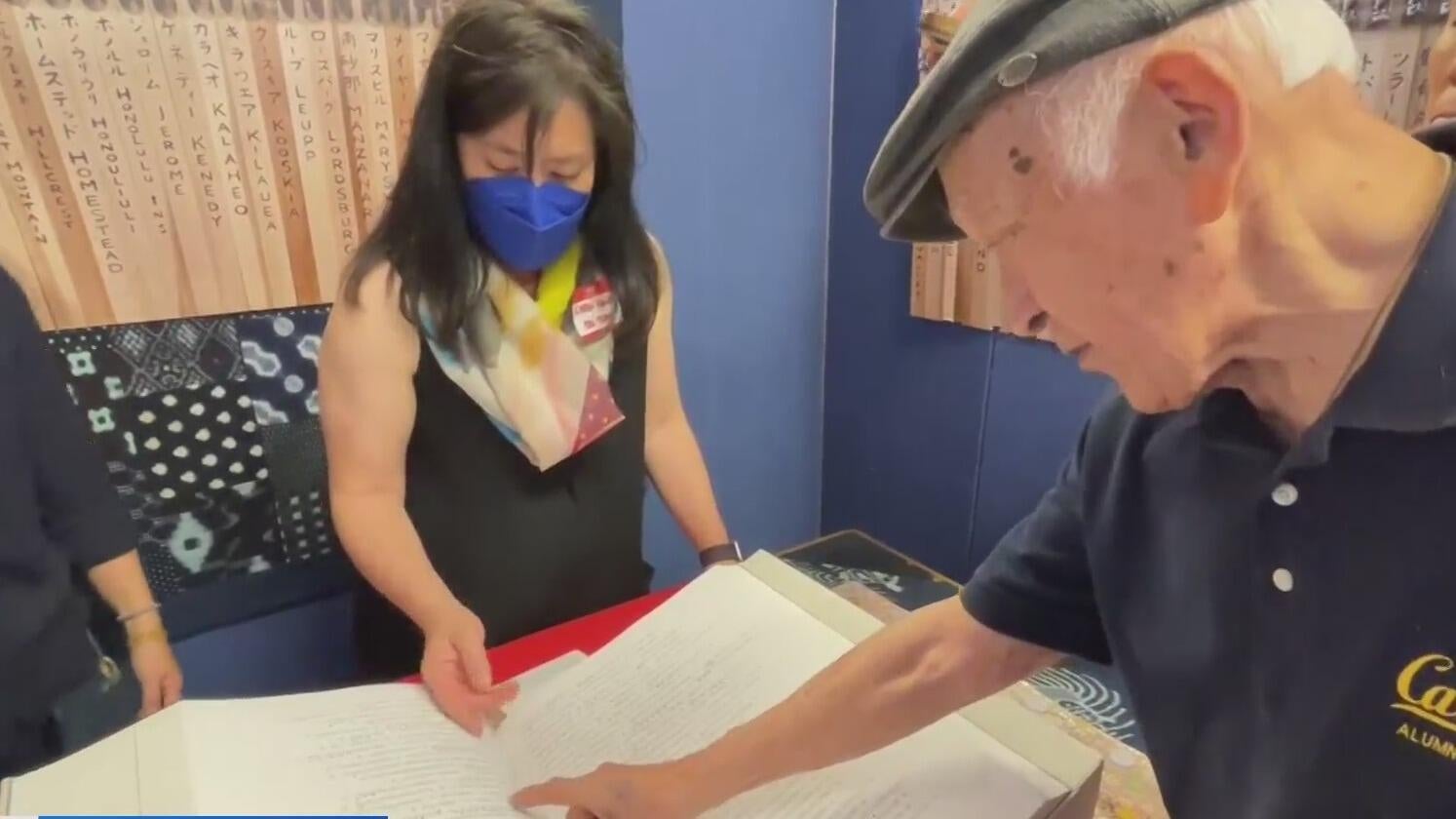Berkeley exhibit lists city's Japanese American residents who were taken during WWII
The Trump administration said it is deporting immigrants because they pose a threat to national security. That's the same reason given for the internment of Japanese Americans during World War II. Now, a national monument in the form of a book that commemorates the internees is on display in Berkeley, and on Tuesday, a Bay Area man had a surprise encounter with his own past.
The Berkeley Historical Society is confronting the city's troubled past when it comes to Japanese Americans with It has identified the names of all 1,194 residents forcibly removed to internment camps following FDR's infamous Executive Order 9066.
"Well, I think what it does is it allows us to reconstruct the lives of the 1,200 people who lived in Berkeley before this evacuation happened," said curator David Ushijima. "And it brings up a lot of memories, especially given the situation currently with immigrant families. When we see the names of people who were forcibly removed by an executive order, we see the possibility that it could happen again. And one of the things we're hoping is that it never happens again."
But in some ways, it is happening again. And that is why "The Ireicho: Book of Names" is so haunting. The project, founded by USC professor Duncan Williams, seeks to list, in one book, the names of everyone who was ever confined in the Japanese internment camps across the country.
"What happened back in WWII was that the federal government targeted a community, labeled it as a threat to national security, enforced a regime of forced removal and unjust incarceration on an entire community without any kind of due process," Professor Williams told a small crowd at the Historical Society Museum. "And we redress that by giving dignity and personhood to each individual, differentiated by their names."
Family members of internees, including Berkeley's mayor, Adena Ishii, were invited to place a small remembrance stamp beneath the names of loved ones. The "Book of Names" is touring the country, being displayed in various cities and at every internment camp site. The objective is to eventually have a stamp under every single one of the 127,000 names in the book.
But on Tuesday, there was one individual in the audience who had a more personal experience. Eizo Kobayashi is now 93, but he was 9 years old when his family was put on a bus from Berkeley to the Tanforan Assembly Center and later sent to the Topaz internment camp in Utah.
KPIX's John Ramos has known Kobayashi for years, so it seemed strange when he saw Kobayashi and his daughter Tamiko begin placing stamps under parents and grandparents, and Kobayashi was able to mark his own name, as well.
"I know. Geez, I'm part of history, John, " he said.
The internment was an experience that has shaped his entire life. But despite the extreme injustice of it all, and maybe because of it, Kobayashi has never taken his citizenship for granted.
"And we just want to show everyone that our loyalty and our devotion was here in the United States. Even through the war," he said. "But we have to keep it that way. We have to learn a lesson from the internment and realize that this should never happen again. An internment should never happen again."
As Kobayashi marked name after name — father, mother, brothers — the memories of those times came flooding back.
"What it does is, it lets everyone know that we survived," he said. "We all made it. And we're all proud to be here in America."
It seems like something he would want to forget. But it is in remembering that the bitterness can be replaced with a sense of purpose to make sure it never happens again.




